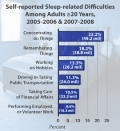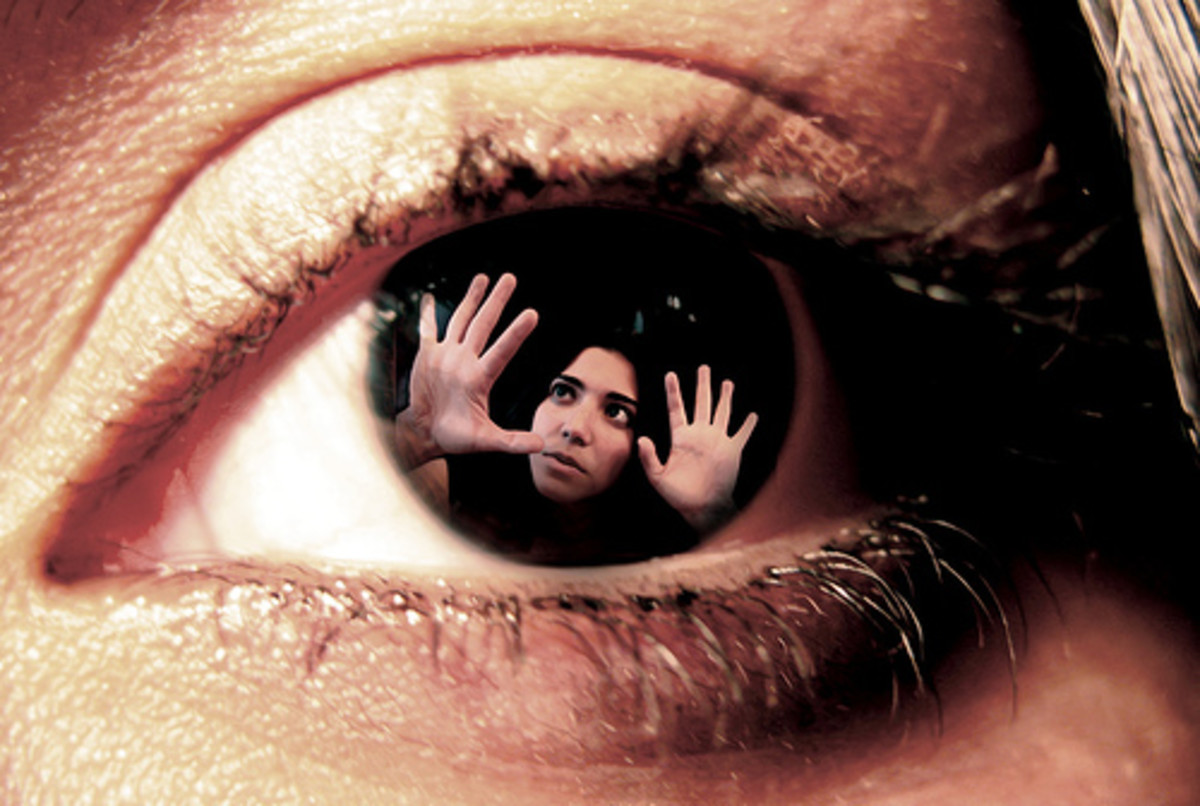Your Sleep Problems May be Easier to Solve than You Think
Approach Sleep Differently
If you think of sleep as an activity on your list--something that's just as important as cleaning the floor or getting your work done--you might be more likely to have better sleep. Sleep is a skill. It's something you have to get good at, and some people are naturally better at it than others. But if you're reading this, my guess is that you're not one of those lucky people. Your body and mind deserve good sleep, so allow yourself that even if it seems difficult.
There are many tactics you can use to approach sleep differently, to take it more seriously. It's not something that just happens at the end of the day because that's the way it's always been. It's something that you need in order to survive, so making a concentrated effort to improve your sleep habits will make the rest of your life better.
Before you lie down to sleep, you can prepare your body and mind for the rest that it needs. It's kind of like stretching before a run or flipping through your textbook before a test. It's a little warm-up before you sleep, and it will help you rearrange the way you think about sleep.
Give your brain something simple to do before you go to sleep and allow it to divert its attention from the ins and outs of your day. Try reading, stretching, or listening to music. Don't make your to-do list for the next day and don't hang out on Snapchat or Facebook. Don't think about all of the things you need to do that week right before you close your eyes. Don't try to finish up work, even if it's just to "get it off your mind." If you do need to take care of those things at night, you can still make a point to do something more relaxing before you go to bed. Insert a relaxing activity into the space between the thoughts and activities that stress you out and the sleep your body and brain need to get everything done.

Tired? You Might Simply Be Uncomfortable
Here's a fun fact: Sometimes the reason you can't sleep well is a simple issue with comfort. Many people don't realize they're uncomfortable an unable to relax until they actually do relax. They feel the difference and think, "Wow, I've been missing out on this all along!" There's a chance that could be what's stopping you from getting quality sleep as well.
We're used to sitting up all day, being alert, and engaging with stressful screens and keyboards and other people. These activities can be good for us, making us feel productive and helping us learn. But, regardless of how good it may or may not be during the day, the point is that we're not usually relaxed during the daytime. That means there is a huge disconnect between the way you feel in the day and the way you need to feel at night.
For many people, the key to good sleep is all in how you actually fall asleep. You might be able to change the quality of your rest with a few simple changes.
- Focus on relaxing, not sleeping. In order to sleep, your body and mind must relax first. You have to take yourself from that wakeful state to one where your brain is not engaged. Instead of trying to go to sleep, simply try to relax. Try focusing on letting your body and mind get closure from the day. Just because you let go of the thoughts about all of the things you need to do does not mean you will forget any of them. Just relax and find out what parts of your body might be uncomfortable. Make minor adjustments to help you relax further. Sleep will come.
- Turn down the lights before you turn them off. Instead of simply turning off the lights, allow yourself some time to transition. If you have two lights on in the room, turn off the brightest one while you brush your teeth and engage in your bedtime ritual. If you go from brightness to darkness, you may not be as relaxed as you ought to be in order to get good sleep because your brain is still active. If you don't have two lights or a dimmer, you might want to consider getting a bedside lamp or even a night light. With a night light, you can't read, but you can lie down and listen to music.
- Make your bedroom darker. Sometimes light can show through your eyelids while your trying to sleep, and you actually see and watch that light. That makes it hard for your brain to relax. Try making your room darker or covering up light sources.
- Flip your mattress. When you sleep in the same position or same spot every night, the shape of your mattress can shift. Your problem may simply be that you're sleeping on a lump!
- Adjust the temperature in your bedroom. It's important to not be too hot or cold in order to be comfortable. You may need to just turn up the A/C at nighttime. It is also important to balance daytime and nighttime temperatures because in the daytime, you are moving around and not under blankets.
Easy Methods to Help You Fall Asleep
- Try deep breathing exercises. Take a deep breath in through your nose for five seconds. Hold it for five seconds. Let it out for five seconds. Repeat three to five times, then simply take deep breaths in and out without holding it.
- Focus on a calm image in your mind. Do you like the beach? Or mountainous scenes? Or a serene, snow-covered lake? Pick a relaxing scene and conjure it up in your mind. Look at it and push all of your other thoughts away.
- Progressively tense and relax your muscles. Start by tightening the muscles in your toes. Hold it while you count to three, and slowly release. Then move to your feet. Then your ankles and your calves, and so on. Move all the way up your body until you get to the very top of your head. Allow yourself to stop if you feel sleep coming on.
- Focus on a word. Much like the calm image exercise, this technique focuses your mind on one thing. Pick a simple word about something you like. Try something short, but multisyllabic, like "pillow." One syllable words, like "dog," start to sound too repetitive and may actually annoy you. Try "puppy" instead. Repeat the word--slowly--to yourself over and over again, pushing away all of your other thoughts. "Puppy... puppy... puppy..." Not "puppy, puppy, puppy." The methodic repetition is soothing, and the focus required can help take your mind off of other stressors.

What You Can Do in the Daytime to Sleep Better at Night
- Don't have caffeine after 3 p.m. In fact, if you can handle it, don't have caffeine in the afternoon at all. Caffeine can make your mind race, and a racing mind is not a restful mind.
- Don't have sugar after 7 p.m. Sugar can make you hyper, which can make your mind race and jumble your thoughts.
- Exercise! Get out there and move around! Your muscles need to be tired out in order to successfully relax. Even if you go for a walk after dinner or during your lunch hour at work, do something to get oxygen into your system. If you're really committed, try yoga or other relaxing exercise practices.
- Go outside and get some sun. It's good to be exposed to bright, natural light in the daytime as much as possible. That way, your mind recognizes the contrast at night and knows it's time to relax. If you are inside at work, open the blinds when the angle of your daylight permits it.
Remember that sleep is just as important as your other daily and nightly activities. Your mind and body will not only thank you when you take care to sleep well, they will reward you.
Do you have trouble sleeping?
Have you tried any of these methods to sleep better?









